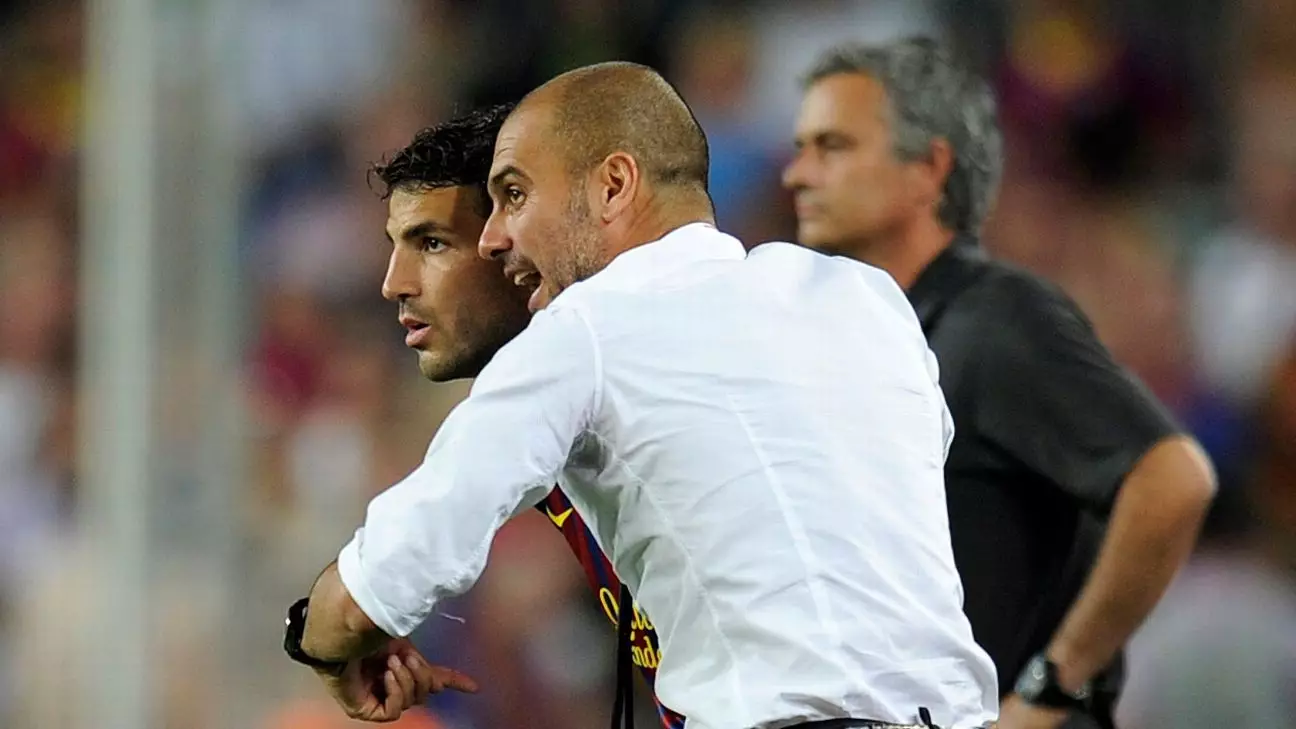Football is not merely a game; it is a canvas upon which lessons of life and leadership are painted. For Cesc Fàbregas, a luminary in this beautiful game, the influence of various coaching giants molded his approach to football and coaching. After a distinguished playing career across top European clubs, Fàbregas has embarked on a new journey as the head coach of Serie A club Como. This transition allows him to reflect on the important lessons learned from legendary coaches such as Arsène Wenger, José Mourinho, and Pep Guardiola—each shaping a piece of his professional ethos.
Cesc Fàbregas’s formative years at Arsenal under Arsène Wenger were pivotal in teaching him the virtue of patience. Wenger’s leadership offered a long-term vision in an increasingly results-driven sport, highlighting that cultivating talent takes time. Fàbregas remembers Wenger as a “gentleman,” someone who prioritized the growth and morale of his players. He noted the current climate in football, where immediate results often eclipse long-term development and the fragility of modern coaching mandates a shift in approach.
Fàbregas asserts that patience is not merely a passive waiting period; it involves nurturing players continually through their ups and downs. As he steps into his role at Como, Fàbregas applies this principle, particularly when working with younger athletes. He understands that development involves continuous learning and a willingness to invest time into training sessions, crafting an environment where players can flourish at their own pace.
Bravery: Lessons from Mourinho
Contrasting with Wenger’s calm demeanor, José Mourinho’s impact on Fàbregas was characterized by boldness. During their time together at Chelsea, Fàbregas witnessed Mourinho’s courage in making swift tactical decisions to capitalize on game scenarios. Fàbregas recalls moments where Mourinho would not hesitate to make critical changes at halftime, showcasing his ability to read the game and respond decisively.
This aspect of bravery is not just about making changes but about psychological acuity—understanding the mental states of players and tailoring his strategy accordingly. Fàbregas admires Mourinho’s knack for knowing when to push a player out of their comfort zone, which is vital in any high-stakes environment. As a coach, Fàbregas intends to adopt this mentally agile approach, ensuring that he makes informed decisions swiftly while cultivating a fearless mindset within his squad.
While patience and bravery form the backbone of Fàbregas’s coaching philosophy, Pep Guardiola’s tactical expertise elevated his understanding of the game to a new level. Under Guardiola’s wing at Barcelona, Fàbregas honed his analytical abilities, learning the importance of studying opponents and devising solutions for various match situations. Fàbregas describes Guardiola as a coach who offered invaluable insights, helping players decipher the complexities of the game as they unfolded on the pitch.
Fàbregas’s admiration for Guardiola extends to his commitment to continuous improvement. He seeks to emulate this aspect in his coaching by providing analytical tools for his players, ensuring they can anticipate and adapt to in-game dynamics effectively. This contains not just a focus on strategy, but also an emphasis on understanding the opponent’s plays, fostering a higher level of preparedness and teamwork.
As Fàbregas steps into the role of head coach for Como, he synthesizes these foundational teachings into a comprehensive vision. He is aware of the challenges that lie ahead, especially in a fierce competition like Serie A. However, the tools he has gleaned over the years from Wenger’s patience, Mourinho’s bravery, and Guardiola’s tactical prowess create a robust framework for his coaching style.
Fàbregas’s journey is a testament to how the core principles of football—patience, bravery, and intelligence—can transcend the pitch and directly impact coaching methodologies. With his rich experiences and deep understanding, he is poised to not only shape young talents but also to inspire a new culture within Como that embraces these timeless lessons, fostering a competitive yet nurturing environment in the beautiful game.

